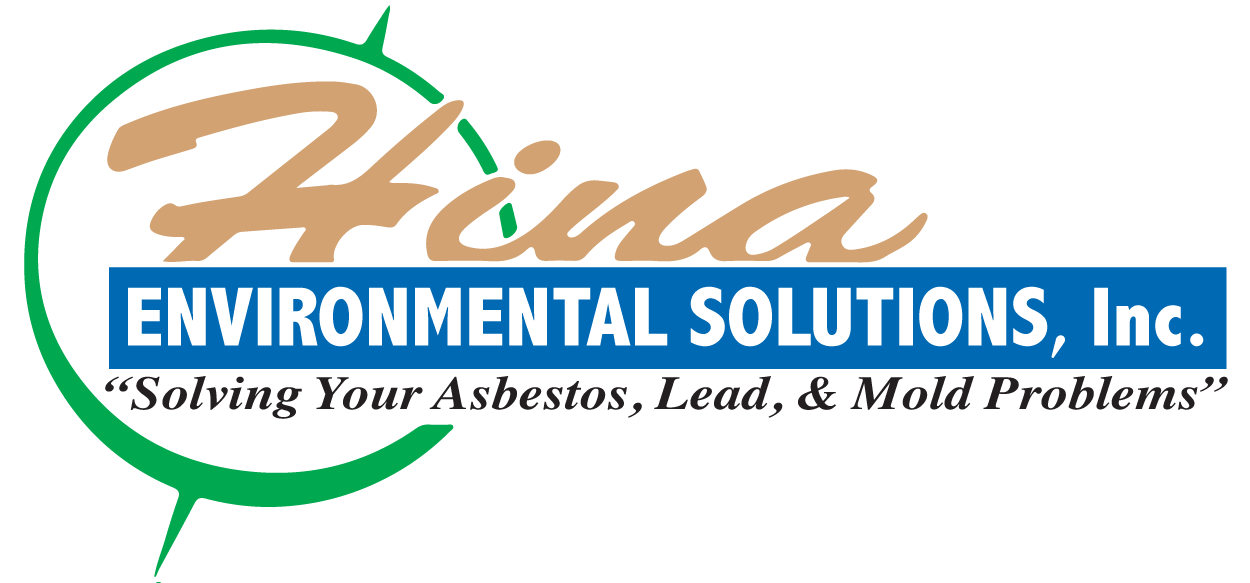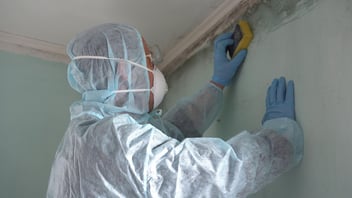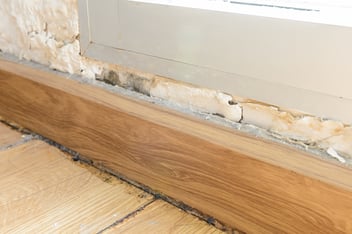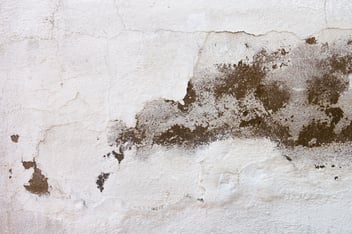What Chemicals Do Mold Remediation Companies Use?
Mold is a persistent and potentially harmful problem that can plague homes and businesses alike. While it may seem tempting to tackle mold issues on your own, mold remediation is a task best left to professionals who are equipped with the knowledge, experience, and the right arsenal of chemicals. In this blog post, we'll delve into the chemicals used by mold remediation companies, explaining how they work, why professional intervention is essential, and why you should consider hiring experts like Hina Environmental Solutions for any mold remediation needs.
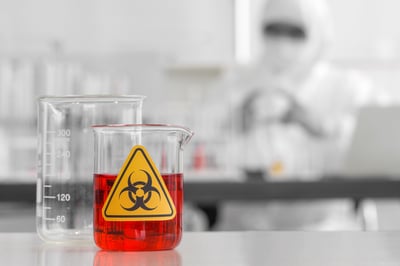 The Chemicals Used in Mold Remediation
The Chemicals Used in Mold Remediation
Mold remediation companies rely on a range of chemicals, each with a specific purpose in the process. Here are some of the key chemicals used:
-
Antimicrobial Agents: These chemicals are designed to kill or inhibit the growth of mold and other microorganisms. Common examples include quaternary ammonium compounds (quats) and hydrogen peroxide-based products. Antimicrobial agents are used to treat affected surfaces and prevent mold from regrowing.
-
Biocides: Biocides are substances that are specifically formulated to destroy living organisms. In mold remediation, they are employed to eliminate mold spores and prevent them from spreading. Chlorine-based biocides are often used due to their effectiveness against mold.
-
Disinfectants: Disinfectants serve to kill harmful bacteria and viruses. While they may not be the primary choice for mold removal, they can be used in conjunction with other chemicals to ensure a thoroughly sanitized environment after mold remediation.
-
Fungicides: Fungicides are designed to target fungi, including mold. They are an essential part of the mold remediation process, as they help eradicate the source of the problem. Thiocyanates and isothiazolinones are common examples of fungicides used by professionals.
-
Cleaning Agents: Mold remediation often involves cleaning and scrubbing affected surfaces to remove mold growth. Mold removal companies use specialized cleaning agents that are effective at breaking down mold, making it easier to remove.
How These Chemicals Remove and Prevent Mold
Mold remediation professionals employ a structured approach to address and prevent mold infestations. The first phase entails a comprehensive assessment where experts meticulously examine the extent of the mold issue, pinpoint the specific mold strains involved, and evaluate the areas affected. This evaluation serves as the foundation for subsequent actions.
Once the assessment is complete, containment strategies are implemented to contain the mold and prevent spore dissemination to uncontaminated zones. This involves isolating the affected area and creating negative air pressure systems to safely expel spores outdoors. Concurrently, mold remediation professionals prioritize safety by donning appropriate Personal Protective Equipment (PPE) to shield themselves from potential exposure to mold spores and the chemicals used throughout the remediation process.
With containment and safety measures in place, the next step is chemical application. Mold experts employ a combination of cleaning, disinfecting, and fungicidal agents to eliminate mold from affected surfaces. Materials that are too heavily infested and cannot be salvaged are safely removed and disposed of, adhering to industry regulations. Furthermore, to prevent future mold growth, professionals address underlying factors like leaks or excess moisture. They may also apply preventive coatings or treatments to surfaces prone to mold infestation. This holistic approach ensures effective mold remediation and long-term prevention.
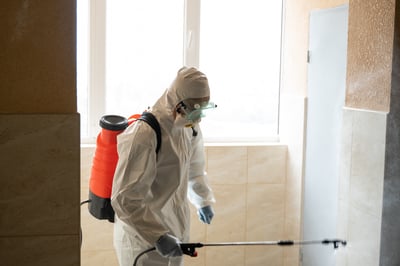 Why Professional Mold Remediation is Essential
Why Professional Mold Remediation is Essential
While DIY mold removal may seem like a cost-effective solution, there are compelling reasons to leave this job to the experts:
-
Safety: Mold can release harmful mycotoxins when disturbed, posing health risks to those exposed. Professionals are trained to handle these hazards safely.
-
Effective Removal: Professionals have the knowledge and equipment to thoroughly remove mold, preventing its return. DIY methods often only address surface issues, leaving the root of the problem untouched.
-
Prevention: Professionals can identify and address the underlying causes of mold growth, ensuring it doesn't come back.
-
Compliance: Mold remediation must often adhere to local regulations and guidelines. Professionals are well-versed in these requirements, helping you avoid legal issues.
-
Time and Cost Savings: While professional services may come at an initial cost, they can save you money in the long run by preventing further damage and the need for costly repairs.
Mold remediation is a complex process that relies on a careful selection of chemicals and a deep understanding of mold's behavior. It's a task best left to professionals who can ensure the thorough removal of mold and its prevention. When it comes to mold remediation, trust experts like Hina Environmental Solutions to safeguard your health and property.
If you suspect mold in your home or business, don't hesitate to take action. Contact Hina Environmental Solutions today and let us handle your mold remediation needs. Your safety and peace of mind are our top priorities.
